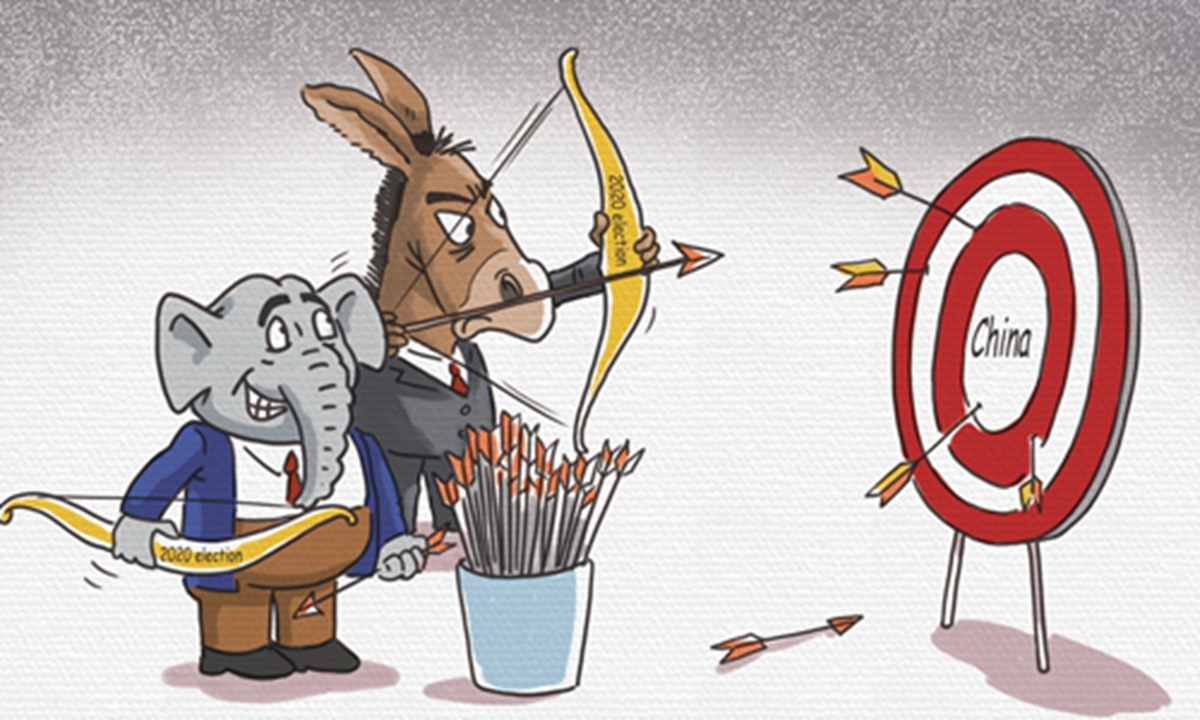China will fight back if new US IP bill is used as political tool against Chinese companies: expert
Source:Global Times Published: 2020/6/15 18:14:47

Illustration: Liu Rui/GT
US Democratic Senator Chris Van Hollen and Republican Senator Ben Sasse have introduced a new intellectual property (IP) bill requiring US President Donald Trump to hand in biannual reports that would identify more foreign companies and individuals in possible IP theft cases.However, the new bipartisan legislation seems more like an attempt from the US government to take closer aim at more Chinese companies like Huawei in the fierce US-China tech race.
"It's time for the US Government to stop leaving an open door for China and other adversaries to steal intellectual property…We have serious economic tools to fight back, let's use them," Sasse was quoted to have said in the press release.
Such groundless accusations and anti-China rhetoric from hardliners like Sasse are hardly surprising. In a recent graduation speech, the Republican senator said China had "started the [coronavirus] pandemic" and said the US would be tough on "thugs in China." A school board member later required the senator to apologize for his speech.
The other pusher of new bill is also one of the politicians who most actively participated in the US' reckless crackdown on Chinese tech giants like Huawei and ZTE. In March, the Democratic senator introduced a bill to freeze Huawei out of the US financial system.
China needs to be wary that it is highly likely the new bill will be used as a tool to launch more unwarranted accusations against, and crack down on more, Chinese companies in the future. Such concerns have proven rational given what these US politicians have done to Huawei in recent years.
As a country that has always advocated IP protections, China will not automatically read a new US IP law as a measure against China. Chinese and US companies have the same interests when it comes to protecting IP, and China has also been strengthening IP protections. But if the US uses this new bill for a political purpose - to attack Chinese companies - then China will definitely take countermeasures.
Certain US politicians should not think that as long as they occupy the moral high ground in protecting IP, they may wantonly suppress Chinese technology companies and crackdown on their development. They must not to blindly make groundless excuses to expand the crackdown on Chinese tech companies. If that happens, it would inevitably hurt the US' own interests.
If such ill-intentioned IP legislation is used as a political tool to suppress foreign tech companies, it would definitely interrupt the market order and industrial chains. Even if the scheme works as these US politicians plan, they would just deal a temporary blow to these companies. However, in the long run, what goes around will come back around to US companies, because they will be isolated from world's current industrial chain and their interests will eventually be hurt.
This article was compiled based on an interview with Gao Lingyun, a research fellow at the Chinese Academy of Social Sciences in Beijing. bizopinion@globaltimes.com.cn
Posted in: EXPERT ASSESSMENT,CHINA-US